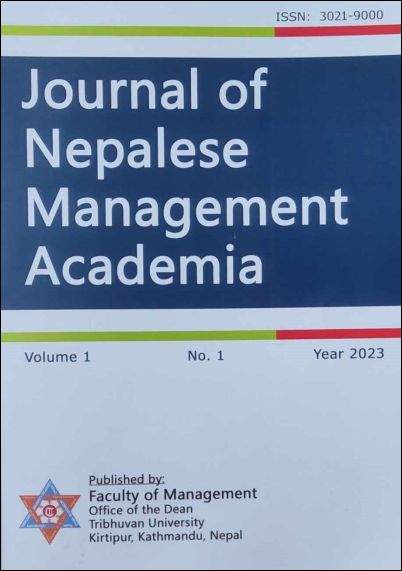Cyberloafing and work performance of employees in Nepalese commercial banks
DOI:
https://doi.org/10.3126/jnma.v1i1.62098Keywords:
Work performance, Cyberloafing, Perceived consequences, Affect, Facilitating conditions, HabitAbstract
There is an ongoing debate about the role of cyberloafing and whether it is a vice or a virtue. Considering this, the purpose of this study is to examine the antecedent factors (intention, habit, and facilitating conditions) that influence cyberloafing and to investigate the impact of cyberloafing on the work performance of employees in Nepalese Commercial Banks. Data were collected using a self-administered questionnaire that yielded 384 responses. Structural equation modeling has been used to test the hypotheses. Findings show that social factor has a significant positive effect on intention to cyberloaf, whereas perceived consequences and affect have an insignificant effect on intention to cyberloaf. Furthermore, intention to cyberloaf has a positive influence on actual cyberloafing behaviour, whereas habit and facilitating conditions have an insignificant effect. Moreover, cyberloafing has a significant positive effect on the work performance of employees. The findings of this study are valuable for both managers and policymakers. These results can benefit the managers of commercial banks in Nepal to decide how to enhance employees’ performance by focusing on cyberloafing.




